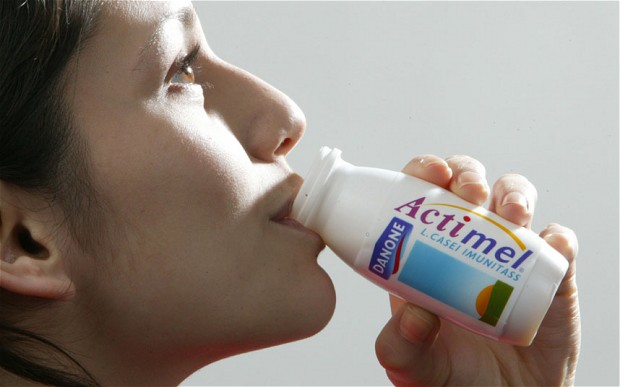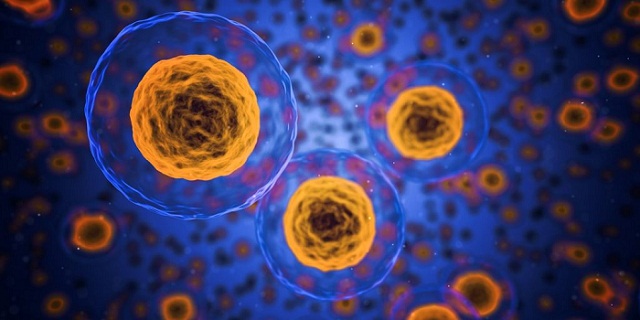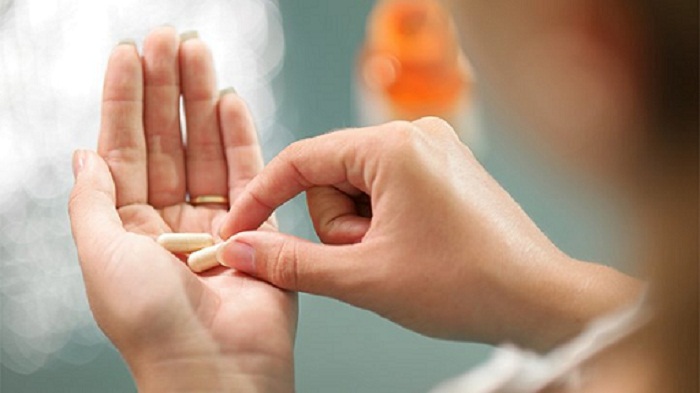Report: The Human Microbiome Creates Previously Unidentified Proteins
It has already been known for quite some time that the human body is dependent on the microbiome made up of trillion of healthy bacteria that call it home.
These healthy strains of bacteria are referred to as probiotics and are know credited with helping the body when it comes to the digestive system, the immune system, and even the central nervous system.
Probiotics help reduce the risk of diarrhea and bloat, help protect the body against bacterial infection and pathogens, and much, much more.
According to a recent report, the human microbiome in our gut also appears to be responsible for creating thousands of tiny, previously unidentified proteins. These proteins could help shed light on the truth behind human health and could lead to the advancement of human drug development.
Before we go into this exciting new report, let’s go over how probiotics help your body thrive on a daily basis.
Simply, probiotics have evolved with the human body over millions of years and are now believed to be intimately intertwined with the human body’s natural makeup. They help our body break down the food that we eat so that we can get the most out of the food’s nutrients without expending so much energy to do it ourselves. Probiotics help reduce the risk of infection by taking up all the room and nutrients necessary for unhealthy bacteria to grow. They protect our skin from acne breakouts and allergic reactions such as eczema. In fact, it is now believed that probiotics may have an impact on reducing the risk of anxiety and depressive mental disorders by helping to develop serotonin and sending it to the brain.
That is what researchers already know – and have been researching for well over a decade – this new report from the Stanford University School of Medicine is something very different and very new.
The Stanford University School of Medicine have discovered that the probiotics inside our body are churning out tens of thousands of proteins that are so small that they have gone completely undetected in previous studies. The proteins themselves belong to more than 4,000 new biological families.
Among a number of processes, these proteins help decide the constant battle for space and nutrients in your body that bacteria wage against one another, the cell-to-cell communication between bacteria and the greater network they call home (your body), and assist the crucial daily housekeeping jobs that keep your body and the bacteria that lives inside it at tip-top shape.
So why is this finding so potentially impactful? MD, PhD Ami Bhatt explained in simple terms that even those completely new to the world or probiotics can understand.
“It’s critically important to understand the interface between human cells and the microbiome,” Bhatt said. “How do they communicate? How do strains of bacteria protect themselves from other strains? These functions are likely to be found in very small proteins, which may be more likely than larger proteins to be secreted outside the cell.”
But the fact that the proteins are so small have made it very hard for researches to identify and study them … until now.
“We’ve been more likely to make an error than to guess correctly when trying to predict which bacterial DNA sequences contain these very small genes,” Bhatt said. “So, until now, we’ve systematically ignored their existence. It’s been a clear blind spot.”
What is so fascinating about these proteins is that they may answer one of the primary questions researchers have had about probiotics up until now. Basically, researchers knew that they helped the body – it’s just that they weren’t exactly sure how. That’s where these tiny proteins may come in.
Bhatt and other researchers at Stanford now believe that these proteins may be so small that they can actually come out of the microbes that create them and travel through human cell membrane in order to communicate with them.
Bhatt further explained what might be going on with these microscopic proteins.
“The bacterial genome is like a book with long strings of letters, only some of which encode the information necessary to make proteins,” she said. “Traditionally, we identify the presence protein-coding genes with this book by searching combinations of letters that indicate the ‘start’ and ‘stop’ signal that sandwich genes. This works well for larger proteins. But the smaller the protein, the more likely that this technique yields large numbers of false positives that muddy the results.”
By now, you might be wondering why this is all so important. When breaking it down just a bit further, it’s actually pretty obvious! The researchers at Stanford believe that these proteins that were ultimately broken up into 4,000 related groups, or families, are likely to be involved in some key processes such as intercellular communication and warfare as well as jobs that are absolutely necessary to keep the probiotic bacteria healthy.
This means that they could have a huge impact on the way that future drugs are not only produced, but how they are used to communicate with both your body’s cells, and the bacteria that lives alongside. Once the truth behind these protein’s jobs are revealed, it could lead to a true revolution in drug making.
“Small proteins can be synthesized rapidly and could be used by the bacteria as biological switches to toggle between functional states or to trigger specific reactions in other cells,” Bhatt said. “They are also easier to study and manipulate than larger proteins, which could facilitate drug development. We anticipate this to be valuable new area of biology for study.”
There is now doubt that probiotics are here to stay when it comes to people’s pursuit of a healthier and happier lifestyle. It will be fascinating to see what role they play in the future of drug research and development going into the future.
Hopefully, these findings make it easier and more productive to treat body with this kind of knowledge. It may just lead to a revolution in the world of medicine.




